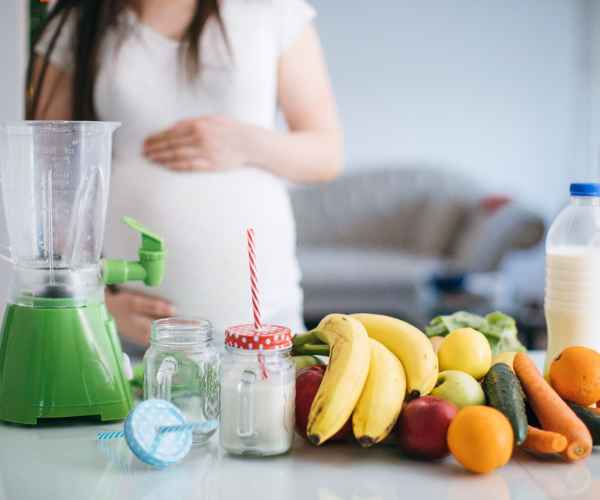Prenatal well-being for the pregnant woman cannot be overemphasized as the body and mind need to be nurtured throughout pregnancy.
As a gynecologist, I can attest that comprehensive preconception care can change not only the life of an expectant woman. This approach includes several measures, such as the following practices that aim to support the health of pregnant women, including their mental well-being and emotional health.
Pregnancy is a transformative period where a woman undergoes numerous changes, highlighting the necessity of enhanced mental health. Pregnant women experience unique circumstances that may impact their overall experience.
It is crucial to understand how a well-structured system can be beneficial. For example, studies indicate that stress can be reduced by up to 30% through holistic activities like mindfulness meditation. Reduced stress promotes emotional stability, contributing to a healthier pregnancy and a smoother childbirth process.
In this section, readers will learn what holistic prenatal wellness entails and how it can help expectant mothers improve their mental and physical health.

What is Holistic Prenatal Wellness?
Holistic prenatal wellness is a prenatal care approach that includes the physical, emotional, and mental aspects of a woman’s well-being before childbirth. This approach goes beyond typical prenatal consultations and traditional medical advice, incorporating practices such as:
- Proper diet
- Exercise
- Counseling and related services
Balancing Pregnancy Through Mental Health, Physical Activity, and Emotional Well-being
Holistic pregnancy care recognizes that the well-being of a woman’s body and mind is equally important. A study by the Journal of Maternal-Fetal & Neonatal Medicine suggested that women with a well-connected support system and healthy stress-management techniques have a 50% greater likelihood of positive mental health outcomes during pregnancy.
The Role of Prenatal Yoga and Meditation
Prenatal yoga exercises not only help tone muscles but also reduce stress, anxiety, and even depression. By practicing yoga, women can better handle stress, contributing to a more relaxed pregnancy.
Case Study: Comprehensive Prenatal Program
An example of holistic prenatal care is Sarah, a pregnant woman from Montgomery County, Kansas. Throughout her pregnancy, Sarah adopted a natural approach, attending prenatal yoga once a week. During these sessions, she practiced breathing techniques that helped her stay focused on her body and baby.
Additionally, Sarah began meditation to manage her concerns about childbirth. Instead of feeling anxious, she took deep breaths and visualized a calm, successful delivery. This practice not only improved her physical health but also enhanced her emotional state, making her feel empowered as she approached delivery.
Key Pregnancy Stages and Vital Health Details
Pregnancy is divided into three trimesters, each with distinct phases and potential risks:
First Trimester (Weeks 1-12)
Significant hormonal changes occur, which may cause symptoms like nausea and vomiting. Hyperemesis gravidarum, a severe form of morning sickness, affects some women during this period.
Second Trimester (Weeks 13-26)
Often considered the “most comfortable” phase, many symptoms like nausea subside. However, some conditions, such as gestational diabetes, can develop in 7-9% of pregnant women in the United States.
Third Trimester (Weeks 27-40)
This period can be physically taxing, with 30-50% of women experiencing back pain. Blood pressure should be monitored closely, as approximately 32% of deliveries in the United States are cesarean sections.
The Role of Prenatal Vitamins and Folic Acid
Prenatal vitamins are essential to meet a pregnant woman’s nutritional needs. Folic acid is particularly crucial, as it helps prevent neural tube defects in the baby’s brain and spinal cord. According to the CDC, taking folic acid before and during pregnancy can reduce these defects by up to 70%.
Myths and Facts About Prenatal Care
It’s important to clarify common misconceptions to ensure women receive accurate information:
- Myth: Any form of stress is dangerous to pregnant women.
- Fact: While excessive stress can be harmful, moderate stress managed through yoga or meditation can be beneficial.
- Myth: Nonconventional treatments don’t work.
- Fact: Research shows that treatments like acupuncture and chiropractic care can alleviate pregnancy discomfort and anxiety.
Common Pregnancy Complications
Pregnancy complications, such as gestational hypertension (high blood pressure) and preeclampsia, can pose risks to both mother and baby. Studies indicate that gestational hypertension affects 2-8% of pregnancies, leading to issues like premature birth or low birth weight.
Diet and exercise are recommended to help manage blood pressure. Foods rich in potassium, like bananas and sweet potatoes, can regulate blood pressure, while light exercise like walking can reduce heart disease risk associated with high blood pressure.
Pregnancy Duration and Trimesters
Pregnancy typically lasts about 40 weeks, counted from the first day of the last menstrual period. The trimesters include:
- First Trimester (Weeks 1-12): Crucial for fetal development, as major systems and organs form.
- Second Trimester (Weeks 13-26): Energy levels generally increase, making it an ideal time for regular prenatal visits.
- Third Trimester (Weeks 27-40): Prepares the body for labor; check-ups are essential as complication risks increase.
Influences on Pregnancy and Holistic Wellness Management
Several factors, including maternal health and lifestyle choices, impact pregnancy. For instance, women who are overweight may face higher risks of gestational diabetes. According to the CDC, obese women have a 50-70% increased risk of developing this condition.
A holistic wellness approach addresses these risks by promoting:
- Personalized nutrition plans
- Physical activity
- Stress-reducing practices like meditation
Studies show that holistic wellness helps women manage the physical and emotional challenges of pregnancy more effectively.
Preventive Measures for a Healthy Pregnancy
To ensure a healthy pregnancy, expectant mothers should focus on:
- Fruits and Vegetables: Aim for at least five servings daily.
- Whole Grains: Incorporate options like brown rice and quinoa.
- Lean Proteins: Include chicken, fish, beans, and nuts.
- Dairy: Choose low-fat products for calcium intake.
Holistic practices, such as prenatal yoga and relaxation techniques, also reduce stress and contribute to a healthier pregnancy.
Safe Medications During Pregnancy
Not all medications are safe for pregnant women. The FDA categorizes medications to guide pregnant women on safe options. Some examples include:
- Acetaminophen for pain relief
- Antihistamines for allergies
- Prenatal vitamins containing folic acid and iron
Avoid Category D or X medications, as they pose risks to the developing fetus. Always consult healthcare providers before starting or stopping any medication.
Holistic Treatments for Pregnant Women
Holistic treatments offer substantial benefits, such as:
- Chiropractic Care: Relieves back pain and discomfort.
- Prenatal Massage: Reduces stress and improves circulation.
- Exercise Regimens: Maintains fitness, boosts mood, and prepares the body for labor.
Research suggests that regular exercise can reduce labor duration and lower the likelihood of cesarean delivery.
Table of Concerns: Holistic vs. Traditional Approaches
| Concern | Holistic Approach | Traditional Approach |
| Morning Sickness | Ginger tea, acupressure | Prescription medication |
| Anxiety | Mindfulness, yoga | Counseling, medication |
| Fatigue | Nutrition, herbal supplements | Rest, supplements |
| Back Pain | Chiropractic care, prenatal massage | Pain relief medications |
| High Blood Pressure | Diet and exercise | Monitoring and medication |
| Gestational Diabetes | Nutrition management | Insulin therapy |
Benefits of Emotional Well-being for Pregnant Women
Emotional well-being is essential for pregnant women and offers numerous advantages:
- Reduced Stress: High-stress levels can endanger both mother and baby, increasing risks such as low birth weight and preterm birth.
- Enhanced Bonding with Baby: Positive emotional health helps mothers bond with their unborn child, creating a nurturing environment.
- Support for Labor and Delivery: Women with high emotional well-being often report more positive labor experiences.
The Role of Spirituality in Prenatal Health
Spiritual wellness supports mental well-being, offering stress relief, resilience, and community support. Practicing spirituality, such as prayer or meditation, can reduce stress levels and increase emotional strength.
Integrating Holistic and Traditional Care
Holistic care practices complement traditional prenatal care, providing balanced and satisfying healthcare for expectant mothers. A combination of self-care and doctor-recommended practices enhances both physical and emotional health, creating a well-rounded approach to prenatal care.
Conclusion
Holistic prenatal wellness empowers expectant mothers to embrace a well-rounded approach to pregnancy, one that nurtures physical, emotional, and mental well-being. By incorporating practices like balanced nutrition, regular exercise, mindfulness, and community support, pregnant women can navigate the challenges of pregnancy with greater resilience, reduced stress, and improved overall health. Holistic care, when integrated with traditional medical practices, offers a comprehensive support system that addresses both the body and mind, leading to a healthier, more fulfilling pregnancy experience. For mothers-to-be, adopting holistic prenatal wellness is an investment in both their own well-being and that of their future child, laying the groundwork for a positive journey into motherhood.






